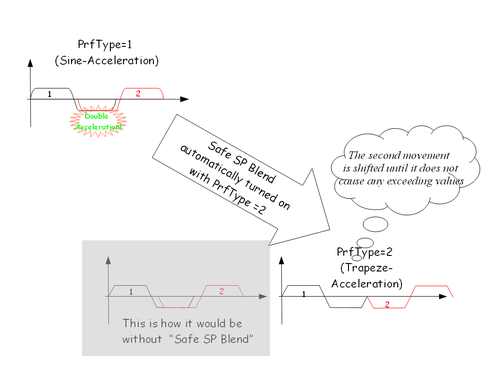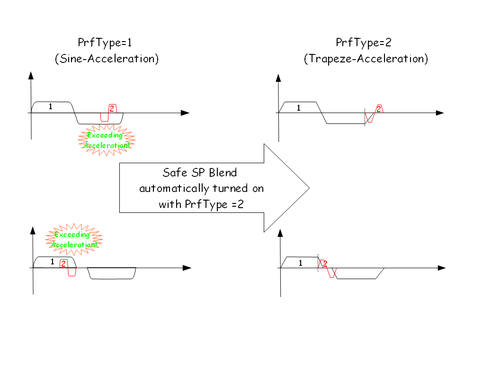Difference between revisions of "Safe Superposition (SP) blending"
| Line 27: | Line 27: | ||
Critical superposition points are checked and if such exist the second motion is postponed by one of the Trapeze-Acceleration motion phases. | Critical superposition points are checked and if such exist the second motion is postponed by one of the Trapeze-Acceleration motion phases. | ||
| − | == | + | == Examples == |
| − | [[ | + | [[File:AXY;Safe_SP_blend.png |border| 500px| caption| Basic idea. The second movement is shifted (delayed) until critical situation disappears. ]] |
| − | [[ | + | [[File:AXY;Safe_SP_blend_(cases).png |border| 500px| caption| Some examples]] |
See Also: | See Also: | ||
* [[Axystems:Time_Based_Profile | Time Based profile]] | * [[Axystems:Time_Based_Profile | Time Based profile]] | ||
Revision as of 06:14, 3 April 2011
Safe Superposition Blending
Description
This feature is automatically introduced by selecting trapeze acceleration profile (PrfType = 2) and superposition bledning (BlendingMethod = 2). No further actions are needed. Once it is selected it works on blending between:
- MOVE and MOVE
- MOVES and MOVES
in both cases it will be assured that the maximum velocity, acceleration and deceleration will be not exceeded during superposition blending. In joint-interpolation case(MOVE):
- Amax,Dmax,Vmax of each of the axes
And in Cartesian interpolation case(MOVES):
- Vtran, Atran and Dtran of the element
by taking into account rate factors: sys.Arate, Sys.Drate, Sys.Vrate, <element>.Arate, <element>.Drate, <element>.Vrate,
How It Works
Critical superposition points are checked and if such exist the second motion is postponed by one of the Trapeze-Acceleration motion phases.
Examples
See Also:

